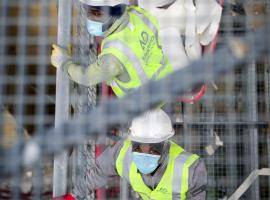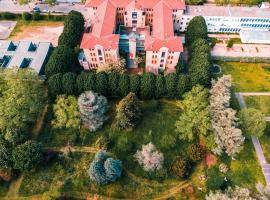The Home Silk Road project in Villeurbanne, Grand Lyon is inter alia an experiment in temporary planning and architecture to address homelessness. With the project due to end this Autumn, this article examines how this approach is being scaled up as part of public policy to address homelessness in Villeurbanne and Grand Lyon.
A major European conference on homelessness was organised by the Metropole of Lyon in March 2022. Participants were invited to visit both Home Silk Road and LA BASE, another project using temporary architecture and planning to address homelessness in Villeurbanne. It was an occasion to take stock of how this model can contribute to the fight against homelessness in the Metropole of Lyon and other cities.
Temporary architecture can be defined as “purposely short-lived structures, exhibitions and programmes that create experimental sites for interaction and engagement”[1]. In the context of homelessness, temporary architecture mobilises land or buildings to provide housing for those that need it, as well as creating new opportunities for them to participate in society. As many cities in Europe face rising levels of homelessness and a shortage of affordable housing solutions, there is growing interest in exploring such models.
The Home Silk Road project involves the activation of a brownfield site, which since 2019 is being transformed into a new residential neighbourhood. Modular housing has been installed to temporarily accommodate homeless families during the redevelopment process. The families were previously living in a disused building on the site, repurposed into a homeless shelter (Centre d ’Hébergement d’Urgence). The modules are factory-prefabricated and wooden-framed. They have been used to create 3 buildings, over 3 floors. The units are studios with private bathrooms and kitchens. At the end of the project, the modules will be redeployed to provide temporary housing on other sites. As well as temporary housing, the project has focused on turning the site into a hub for cultural, participatory, and social economy activities.
LA BASE opened at the beginning of March 2020. 17 single women with young children (51 people in total) live here in “Tiny Houses” - 20m² mobile bungalows for up to 4 people. Each contains a small bathroom, combined kitchen and living area, and a bedroom. The project is financed by the Metropole of Lyon and an association of businesses working to address homelessness, L'Entreprise des Possibles. The land has been made available by the Metropole. Another similar project, Les Amazones, followed in 2021. Both projects reflect a new political commitment to developing temporary urbanism as part of the solution to homelessness.
























